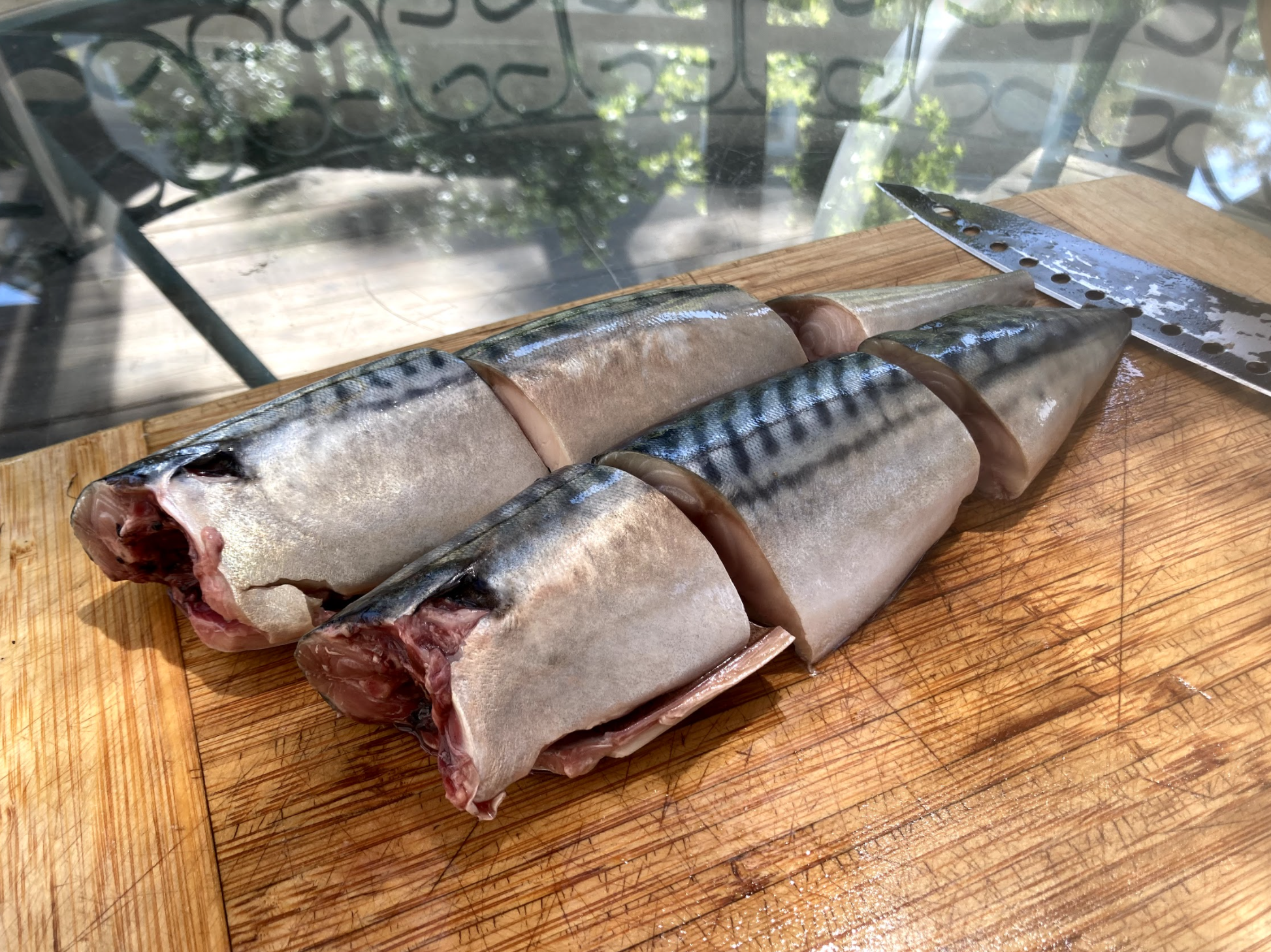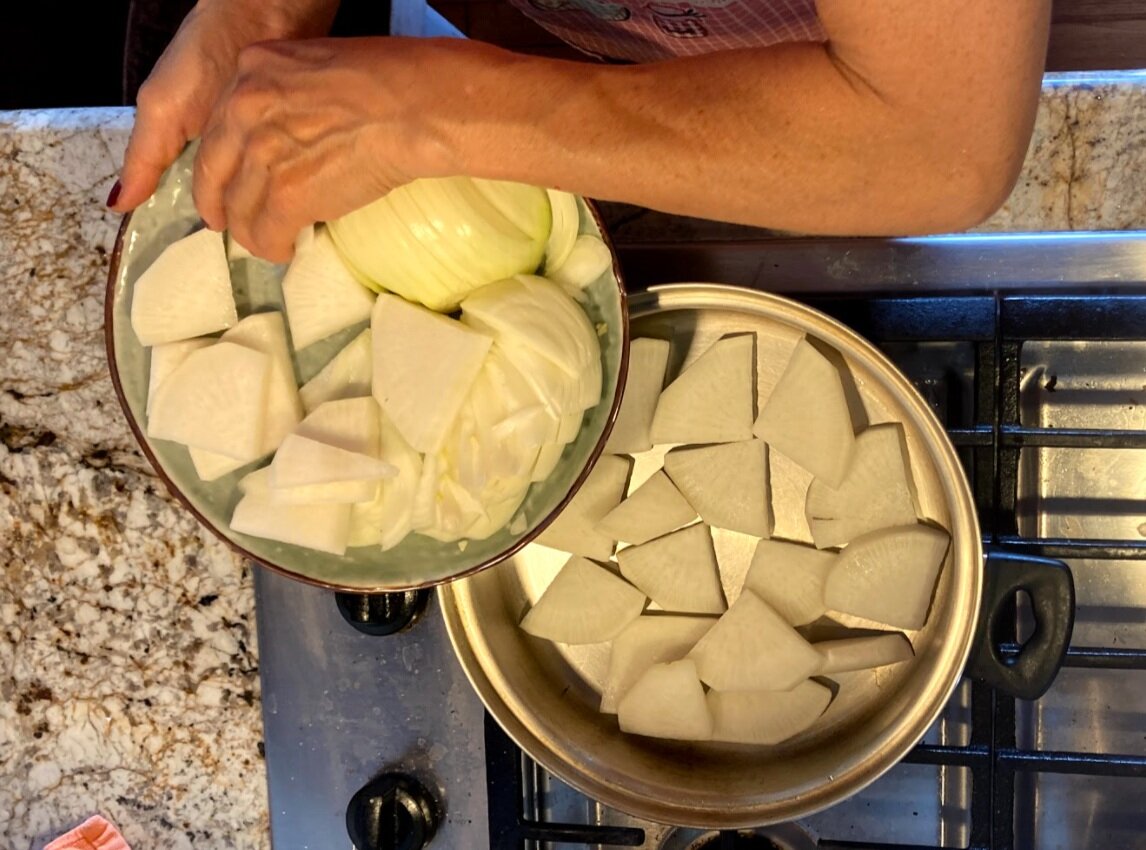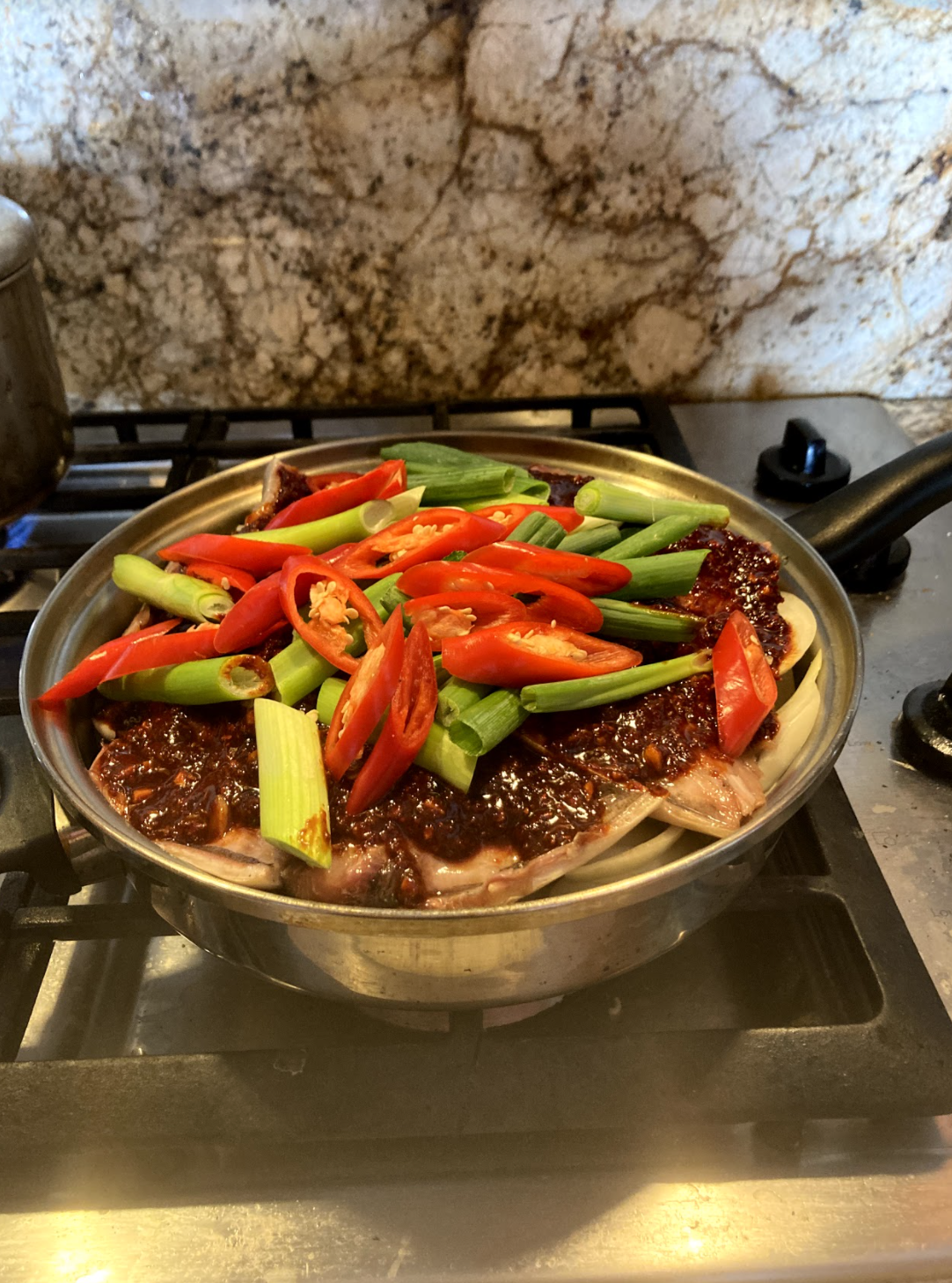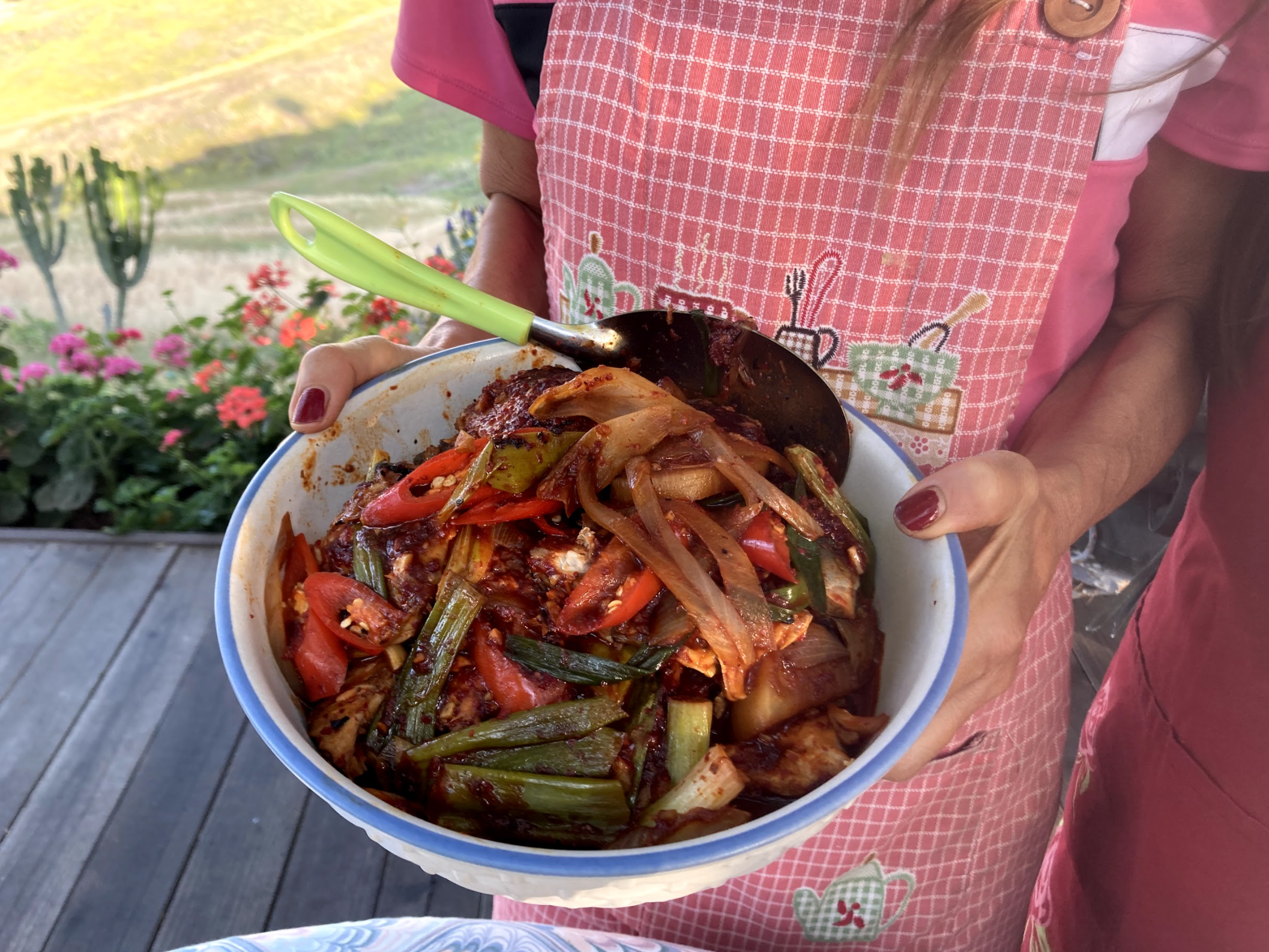Korean Spicy Braised Mackerel
Spicy braised mackerel with vegetables, ready to serve with a side of rice! Image by Emily Miller.
Recipe Author: Imsun & Emily Miller
Hometown: Busan, South Korea
This is a traditional Korean recipe that my mother, Imsun, has prepared for me throughout my life. Eating these cultural dishes has been the most simple and delicious way to honor and connect with my mother and my heritage. When visiting relatives in Korea, they are always amazed at how enthusiastically I devour the gamut of Korean food, no matter how spicy or garlic-laden. Today, we cooked this braised mackerel together.
Another version of this recipe uses black cod. Strongly-flavored fish excel in this preparation, so Pacific bonito, skipjack, or cooking-grade bigeye tuna are great fits for this recipe too. I think it is well-suited for adaptation to many species of fish, braised whole, so get creative with your choice of fish!
My mother purchased this Atlantic mackerel from a local Korean supermarket. In her part of Southern California, it is difficult to find a specialty seafood market that sells local or U.S. caught fish. She lives a bit too far inland for that. While we prefer to eat local species that are caught with sustainable methods, and buy direct from fishermen and women, it can be challenging to find local sources for mackerel. In the U.S., it is seen as a bait fish rather than a species for human consumption. What a shame! You would all agree it deserves greater appreciation, if you could have tasted our meal!
Ingredients
Serves 4 people.
2 large whole mackerel
1 large daikon radish
1 onion
Bundle of green onions
Bundle of red Korean chile peppers (optional)
1 cup water
For seasoning
½ cup soy sauce
2 tablespoon sesame seed oil
1 tablespoon gochujang (korean red pepper paste)
2 tablespoons white sugar
4 tablespoons gochugaru (Korean red pepper flakes)
5 large cloves garlic, minced
1 “thumb” of ginger, minced
Imsun & Emily Miller
Imsun Miller was born and raised in Busan, South Korea, a few kilometers from Jagalchi, an internationally-known open-air fish market and shipping port.
South Korea has modernized rapidly in the last few decades due to industrial and economic growth, but in the time of Imsun's youth, her family relied heavily on foraged seafood and whole-fish consumption out of financial necessity. Imsun maintains traditional eating practices and enjoys sharing them with others.
A common refrain in her kitchen is: "you have to suck on the head!" She takes great pleasure from being resourceful, and feeds her memories of Busan by preparing these cultural recipes. There is no waste in her kitchen, and what is not eaten is turned over into compost for her elaborate garden.
How to Prepare
Step 1
Mince garlic and ginger, and mix them thoroughly in a small bowl with the other ingredients for your seasoning.
Chop onion into thin slices. Chop green onions into 2-inch sections. If using korean red chile pepper, chop into small sections too.
Step 2
Peel the daikon radish, and chop it into thin quarter-slices too.
Step 3
Prepare your whole mackerel by slicing off the fins, heads (or leave them in for extra flavor if you like!) and removing the guts. My mother put the guts into her garden compost.
Cut into 3-inch “steaks”, then cut those sections in half along the backbone.
Step 4
Arrange the onion slices and daikon radish slices in the bottom of a pot or a deep pan.
Step 5
Layer the mackerel sections on top of the daikon & onion.
Generously heap spoonfuls of the seasoning mixture on top of the mackerel sections until they are covered.
Step 6
Arrange the green onion and red chile pepper on top of everything! Now it looks quite pretty.
Turn the heat up to its highest setting on the stovetop. Pour the cup of water into your pot or pan. The water will steam the fish and vegetables, keep them from burning, and create a spicy broth that is excellent over rice!
Step 7
Allow the pot to reach a boil, then turn the burner down to a low simmer for 15 minutes, or until the mackerel is fully cooked.
Smaller pieces of fish cook faster, so keep that in mind if you choose to use a different species of fish!
Step 8
Serve hot, in a bowl, with fresh white rice on the side!










